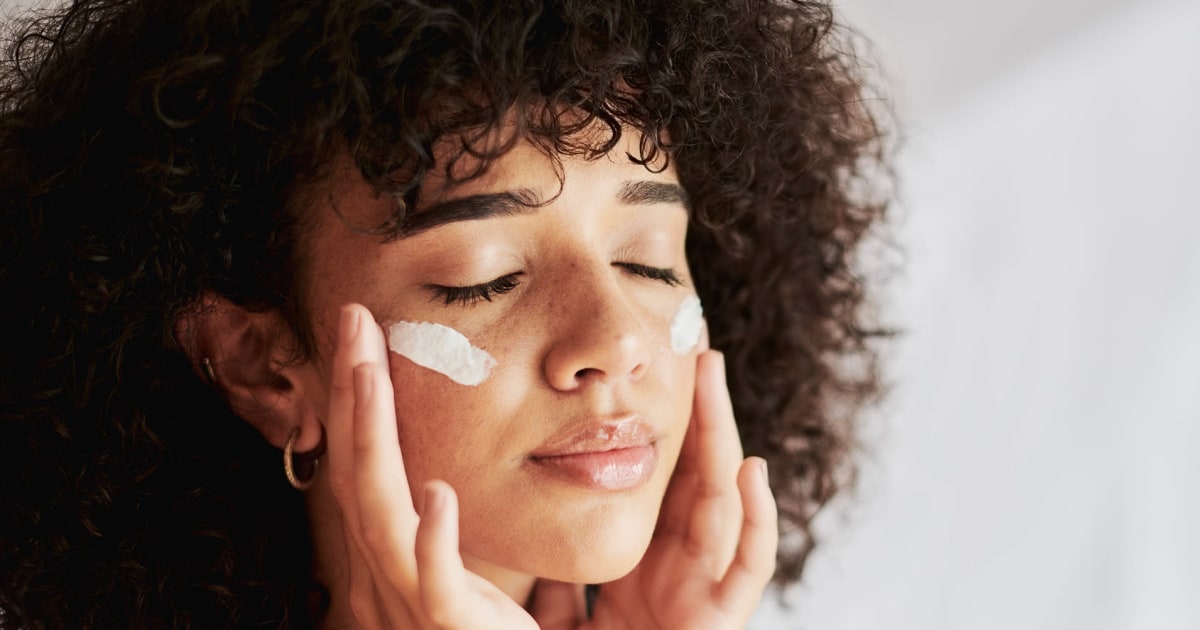Magnesium is having a bit of a moment.
Like vitamin C before it, magnesium has managed to be both an essential mineral that we all need to live and a trendy ingredient popping up in viral TikTok recipes. Now, it’s in skin care.
“I never really thought of magnesium as something specific for skin because it’s not just for skin,” dermatologist Dr. Shasa Hu, cosmetic director of the skin of color division at the University of Miami Dr. Phillip Frost Department of Dermatology and Cutaneous Surgery, tells TODAY.com.
While magnesium can help maintain the function of your skin’s protective barrier, Hu says, it’s also necessary for many bodily functions, including muscular function, brain health, glucose metabolism and energy processing in your cells.
These days, you might see magnesium marketed in products alongside other skin-care ingredients including peptides and antioxidants. It’s been included in products with supposed anti-aging benefits as well as “calming” moisturizers.
“It’s not like we haven’t recognized magnesium as being important,” Hu adds, “it’s just surprising that we’re all talking about it now.”
So, how much of magnesium’s potential skin benefits are hype versus the real deal? Here’s what the experts say.
Magnesium Benefits in Skin Care
“There’s not a ton of really high-quality studies on magnesium (in skin care), but it certainly has some data to support its use,” Dr. Shari Lipner, associate professor of clinical dermatology at New York-Presbyterian Hospital/Weill Cornell Medical Center, tells TODAY.com.
Primarily, magnesium is thought to support the functions of the skin barrier, Lipner says. When it’s working properly, the skin barrier both keeps water in the skin, ensuring it stays hydrated, as well as protecting the skin by keeping potential pathogens out.
These functions in combination with magnesium’s possible anti-inflammatory properties “could be beneficial in diseases like eczema and psoriasis,” Lipner explains. Conditions like these are characterized by a damaged or dysfunctional skin barrier, which leads to dry skin and scaling.
In fact, there is research to suggest that Dead Sea soaking can be helpful for people with psoriasis, Hu says. “They have compromised skin barrier, so they have (much) higher absorption,” she explains, which can even increase the magnesium levels in their blood.
However, don’t expect to get the same level of relief at home.
The skin-care products you see with magnesium don’t have anywhere near the same amount of the mineral, and those with an intact skin barrier aren’t likely to get much penetration, Hu says.
Additionally, magnesium may confer some anti-aging benefits by assisting with the synthesis of collagen and elastin, Lipner says. “It can also help regulate oil production from the sebaceous glands,” she adds, which could be helpful for those with oil, acne-prone skin.
Do Magnesium Lotions Actually Work?
Some magnesium creams, lotions and sprays are advertised as being “transdermal,” meaning they’re designed to penetrate the skin into the bloodstream.
But does that mean you can use magnesium lotion instead of an oral supplement? Not really, integrative pharmacist Emlah Tubuo, owner of Powell Pharmacy and member of the American Pharmacists Association, tells TODAY.com.
“If you’re looking for magnesium to actually rectify a deficiency, the go-to will not be topical magnesium,” Tubuo explains, so it’s not a replacement for an oral magnesium supplement.
But, for something like muscle soreness, she may steer folks towards a mineral soak or epsom salt bath, both of which are typically forms of magnesium.
“There’s some research that shows that it will penetrate through the hair follicle and through sweat glands,” she says, “but it’s not significant enough to make a change in the serum levels of magnesium.”
That’s because it’s actually quite a challenge to get magnesium into the bloodstream. For one thing, the formulation needs to be lipophilic, meaning it’s fat-soluble, to get through the top layer of skin, Hu explains. And it also needs to be a small enough molecule to make it through, she added.
So far, research shows that topical magnesium just isn’t absorbed effectively enough to make a major difference, Hu says.
Magnesium Risks
Magnesium is an essential mineral, and topical magnesium products are generally safe for most people. But, the experts say, there are some who should take caution with any magnesium product — including skin care.
The balance of magnesium in your body is regulated by your kidneys, Tubuo says. “So, if your provider has ever told you that there’s something wrong with your kidneys, or they are watching your kidneys, don’t go near magnesium supplementation,” she warns.
If you have any kidney issues, it’s going to be much harder for your body to properly excrete excess magnesium, Tubuo explains. That’s true for oral magnesium supplements, and you should also err on the side of caution and skip topical magnesium, too, Lipner says.

